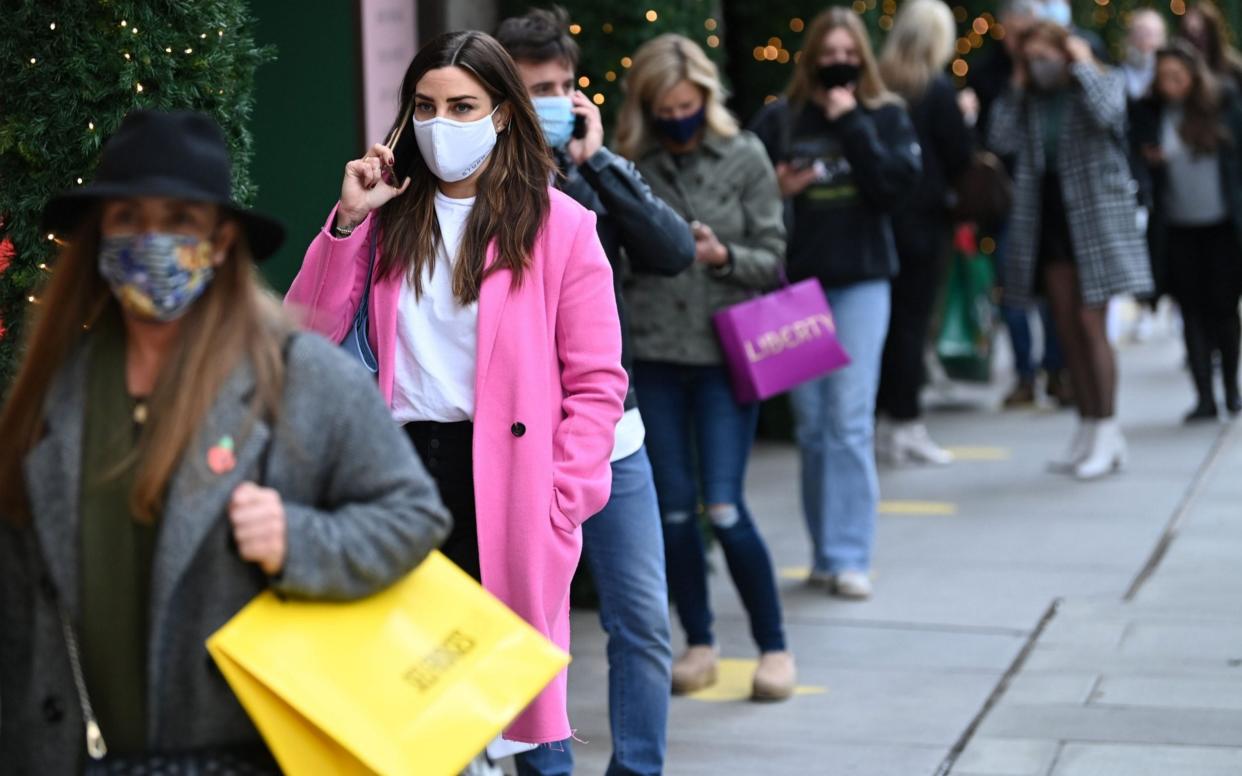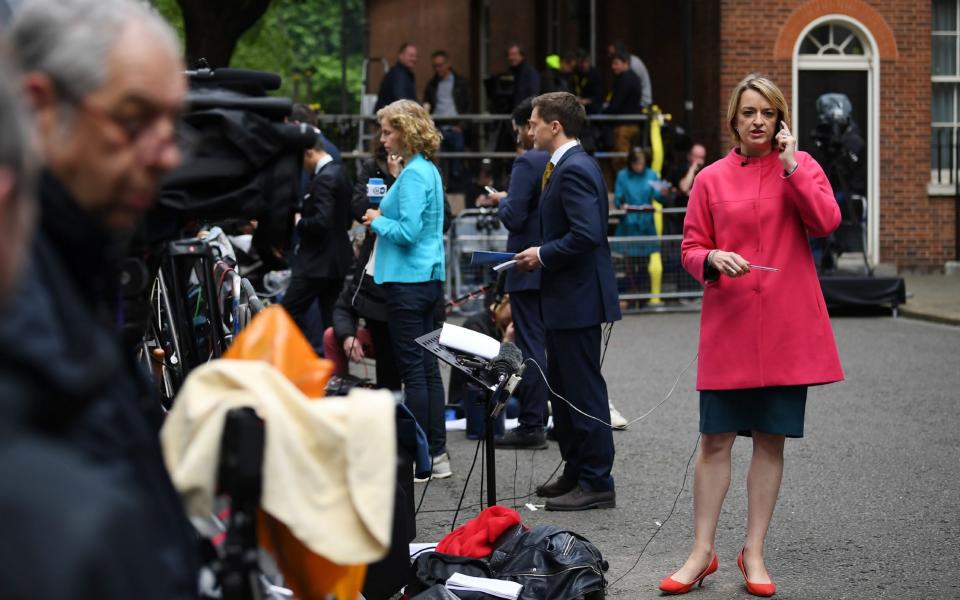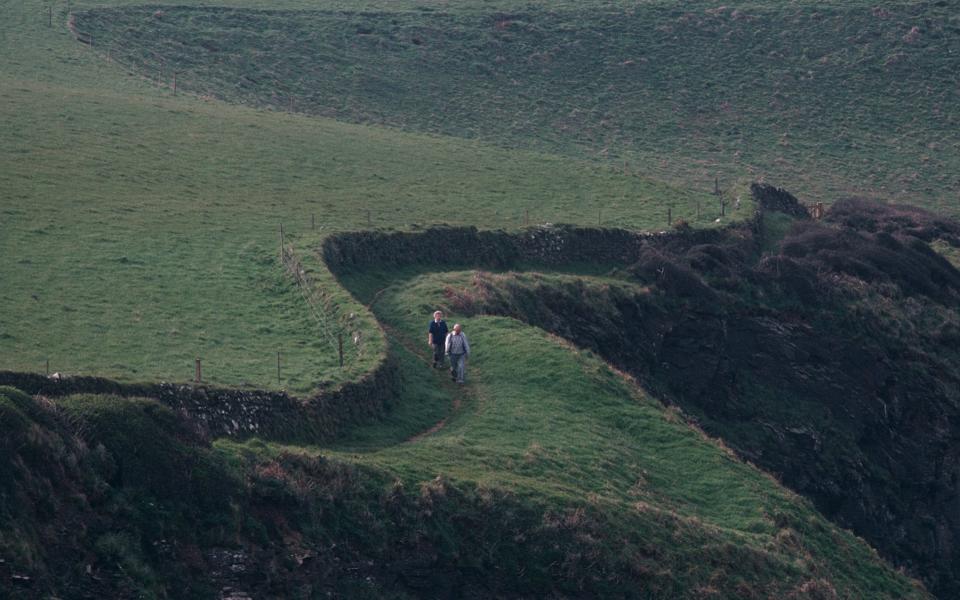Letters: Wanted: verified scientific claims to make up for lost trust in politicians

SIR – With another lockdown upon us, with half the country furious and the other half fearful, with deaths from other causes and economic hardship rising, and with debate raging about the validity of statistics and the honesty of politicians and scientists – now is the time for a pause and a reset.
Let’s put the blame game to one side, accept that mistakes have been made, and start with a clean slate.
We need an independent panel, perhaps of senior members of the judiciary and the medical profession, who – unlike politicians – are equipped to interrogate properly the Sage scientists about the assumptions and data on which their models are based.
Then we could all have confidence that life-changing decisions are being made without individual concerns about reputation or culpability – or, worse, political ambitions.
Howard Gray
Malmesbury, Wiltshire
SIR – Vulnerable people will not have to shield during this new lockdown, because of concerns over loneliness and mental health. But the whole country is to be locked down, irrespective of the harm to the economy and health this will cause.
Supermarkets can sell alcohol, but not pubs and restaurants that arrange takeaways and depend on sales if they are to avoid closure.
These measures are inconsistent, ill-thought-through and unworthy of a liberal, freedom-loving, pro-business Conservative Government, which has, sadly, lost its way.
Jennie Naylor
East Preston, West Sussex
SIR – I see no point in the Government seeking to protect our lives if it leaves us with nothing worth living for.
Paul Tilley
London EC2
SIR – When you are faced with writing the last pages of your book you do not want them to be blank pages.
Nick Filleul
Tring, Hertfordshire
SIR – Churches have been taking every possible step to ensure people’s safety with masks, social distancing and cleaning. To find them closed for the next month is a real blow, especially as it covers Remembrance Sunday.
Church leaders need to speak out.
Hilda Gaddum
Macclesfield, Cheshire
SIR – With 250,000 others I signed an online petition to allow golf courses to remain open. Golf poses little Covid risk, being outdoor, contact-free and inherently socially distanced. During the first lockdown, closure of club houses, bars and changing rooms ensured golf remained Covid-secure.
However, the physical and mental-health benefits of golf are widely recognised by the BMA and others.
The Chief Medical Officer has said that we “may have to learn to live with Covid”. We must differentiate high-risk activities from those where risk can be reduced to tolerable levels.
Paul Bennington
Guildford, Surrey
Return of the lynx
SIR – Dr Stephen Westgarth’s evidence for reintroducing the lynx (Letters, November 2) is a little misleading.
He cites Yellowstone Park in the western United States, where the population density is 140 times sparser than that of the Yorkshire Dales. More than 70 of Yellowstone’s mountains are two and a half times higher than England’s highest. This area cannot be reasonably compared to Britain.
He goes on to say that the threat to sheep farming in Switzerland and Sweden is minuscule. But Britain has 50 times as many sheep as those countries – and the density of our sheep population is 100 times greater than that of Sweden.
Dr Westgarth suggests that lynx would help cut road deaths by reducing the number of deer. Statistics on road deaths caused by deer are hard to come by, but by my rough calculation the lynx would have to slay about 270 deer a day to have any effect.
Moreover, I can’t help thinking that, if I were a lynx, I wouldn’t bother hunting deer in the forest when lambs and other domesticated animals are easily available in enclosed pastures. Even if it doesn’t come naturally, the lynx will adapt to taking farm animals once they find how easy it is.
Roger Leppard
Christchurch, Dorset
SIR – What study has proved that ecotourism would outstrip sheep predation, as Dr Westgarth predicts?
I was also under the impression that Britain’s deer population explosion was of red deer, not roe deer. If lynx cannot deal with red deer, the losers will be our sheep farmers.
Hamish Grant
Chard, Somerset
Cameras outside

SIR – Why is it that, every time the Prime Minister makes a statement, a television reporter and camera crew have to report from outside No 10? It’s almost as if they expect the PM to come out and join them.
Come on, BBC and ITV: cut costs and keep these guys in the studio.
Bob Kingsland
Stroud, Gloucestershire
Look, no hands!
SIR – I wonder how many Promenaders of a certain age recall Colin Davis using just his eyebrows (Letters, November 2) to conduct part of the Last Night in 1971.
Garry P High
Guildford, Surrey
Vaccine for volunteers
SIR – The Oxford vaccine is already being given to human volunteers in trials and is reported to be showing promising signs of suppressing the coronavirus.
With the infection rate still going up, surely it would be worth going one step further during the lockdown and permitting all willing volunteers from the community to be given the active vaccine straight away.
Already the manufacturers have a stockpile of the yet-to-be-licensed vaccine ready to distribute. If enough people were prepared to take the slight risk of harm from being vaccinated as part of a mass trial, data would accumulate quickly on its effectiveness.
As an elderly individual with underlying health conditions, I would opt for the vaccine, which is why I have volunteered for trials in the hope of getting vaccinated as soon as possible.
Dr Colin V Newman
Bingley, West Yorkshire
SIR – Boris Johnson has hailed advances in medicine including “virtually instant” Covid-19 tests, and said there is a “real prospect” of a vaccine in the first quarter of next year.
“I believe that these technical developments, taken together, will enable us to defeat this virus by the spring as humanity has defeated every other infectious disease,” he said (report, November 3).
The Prime Minister seems not to realise that humanity has not defeated every other infectious disease; we have merely learnt to live with influenza and many other infections.
Trevor Steggles
Sawbridgeworth, Hertfordshire
Home of the brave?
SIR – On Monday’s edition of Newsnight, Emily Maitlis described America as “this once great democracy”. I have two questions:
First, when was it great?
Secondly, when did it stop being great?
Timothy McPhail
Pangbourne, Berkshire
Notes of cheerfulness
SIR – Like Judith Woods (Comment, October 30), I have bank notes which have not seen the light of day for many a month.
There is a simple way to part with these and that is to be generous this Christmas towards home callers, such as postal workers, dustmen and the milkmen or milk/women who have worked uncomplainingly and with good humour under difficult conditions.
We can spread some joy among these people this Christmas – they deserve it.
Graham Symes
Horsham, West Sussex
Poppies row on row
SIR – The British Legion put out a call for small local sellers of poppies this year. I sold mine immediately and requested another 20.
How am I to sell these during lockdown? So far I can only think of putting a plastic bag and an honesty box on my garden gate.
Jacqueline Davies
Faversham, Kent
The Governor
SIR – As Michael Gove pronounces Covid as in Coventry, perhaps we should call him Gove as in govern.
Mark Solon
London E1
Too little time to put rights of way on the map

SIR – There are thousands of rights of way that need to be put on the definitive map by January 2026 – or they will be lost for ever (report, November 2).
However, the work involved in proving that they are public highways is awesome and expensive. Local authorities haven’t got the resources to deal with applications, and of course objections by landowners and other parties mean lengthy delays, often ending in costly public inquiries.
The 2026 cut-off date should never have been agreed in the first place. It needs delaying, or – better still – abolishing altogether.
Bill Tait
Helmsley, North Yorkshire
Where the Church of England’s money goes
SIR – The bishops’ claim (Letters, November 2) that the Church Commissioners will distribute £900 million to support the Church’s work over three years is tendentious.
Of that huge sum, £360 million will pay for clergy pensions accrued before 1998; £230 million will go to supporting dioceses, which are ever-growing bureaucracies; £115 million is for the ministry of 114 archbishops and bishops; £65 million is for training ordinands and curates, and £40 million goes towards supporting cathedrals.
This leaves £30 million a year to spread across the Church of England’s 18,000 benefices – £1,700 each. This does not go far towards finding the average £60,000 annual parish share.
Len Palfrey
Pangbourne, Berkshire
SIR – Our church has had no roof now for nearly two years as a consequence of the lead being stolen.
As a small rural parish, our finances could not cover the cost of the roof alarm system (£4,500) required for the full insurance cover, while paying to Salisbury diocese our parish share of £6,000, together with the ever-increasing maintenance costs.
Had the Church Commissioners, in 2017, taken back their responsibility to pay clergy stipends and pensions (Letters, October 27), we could have purchased the roof alarm system – and we would not have the burden of raising the cost of the repair, or put up with a flapping tarpaulin during services.
David Ennals
Toller Porcorum, Dorset
SIR – I served as treasurer to our two village churches for 21 years.
In the late Nineties, the diocese sold our village vicarage for around £125,000. Although this had been built in the 1870s by public subscriptions from our High Peak village, we received not a penny of the proceeds. To add insult to injury, we then had to pay £2,000 to the diocese to buy back part of the vicarage garden to use as our church car park.
Caroline Rofer
High Peak, Derbyshire
Letters to the Editor
We accept letters by post, fax and email only. Please include name, address, work and home telephone numbers.
ADDRESS: 111 Buckingham Palace Road, London, SW1W 0DT
FAX: 020 7931 2878
EMAIL: dtletters@telegraph.co.uk
FOLLOW: Telegraph Letters on Twitter @LettersDesk

